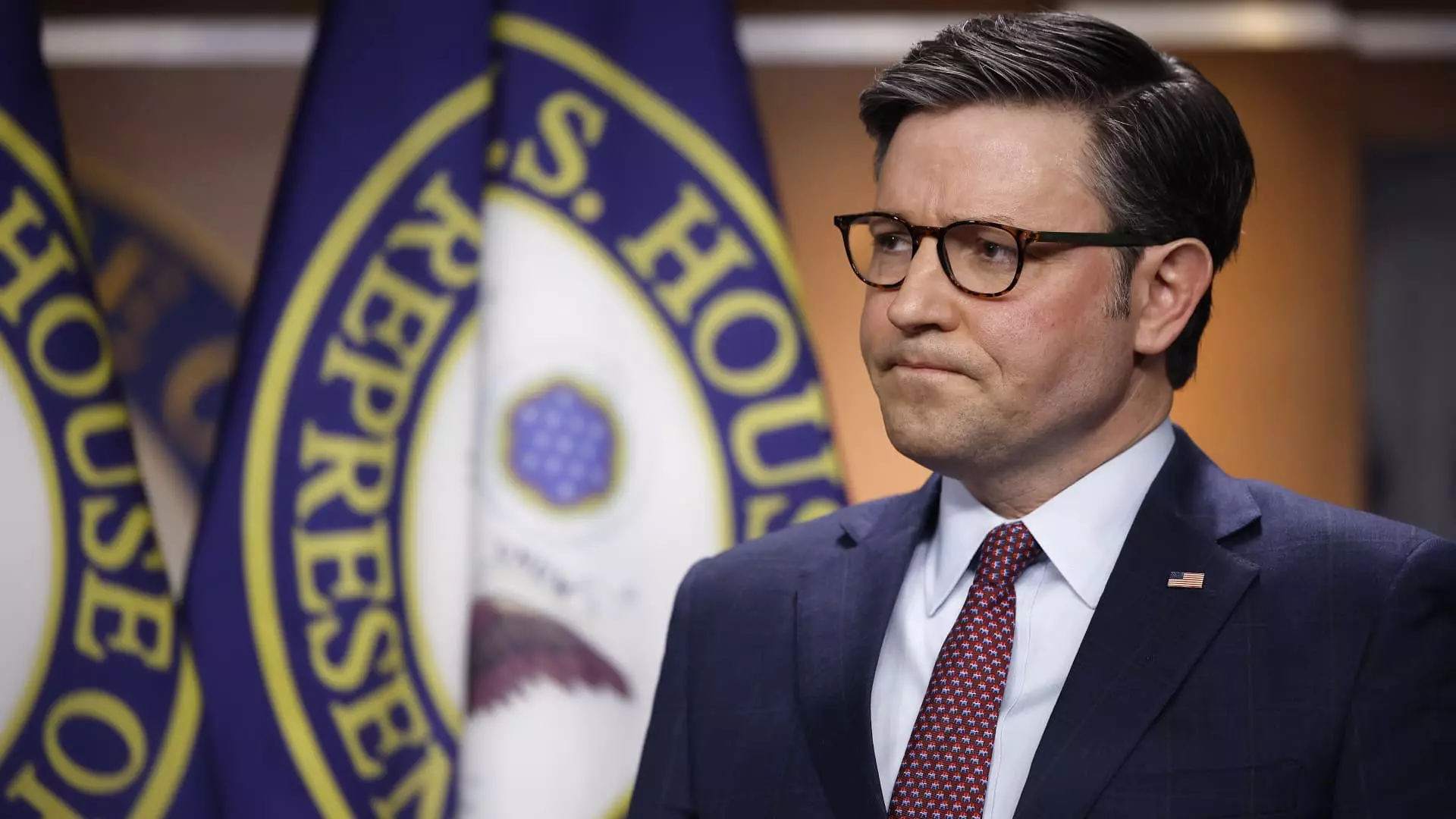The negotiations over emergency aid proposed by President Joe Biden in October continue to be deadlocked, with House Speaker Mike Johnson, R-La., announcing an Israel-only funding package to be voted on next week. This move presents a challenge to the long-awaited Senate package that is expected to be released this weekend. While the Senate bill aims to include broader foreign aid and address border security funding, the Republican-majority House intends to take a hard stance, particularly for Republican hardliners who prioritize spending limitations and border security enhancements. The lack of collaboration between the two chambers has raised concerns about swift consideration of any legislation.
The House bill, set to be voted on next week, includes $17.6 billion for Israel’s military and U.S. military forces in the region, given the ongoing conflict with Hamas in Gaza. This funding would supplement the $14.3 billion already passed by the House following Hamas’ attack on October 7th. Notably, the House bill separates aid to Israel from assistance to Ukraine, Taiwan, and the U.S. southern border, which were all originally linked in Biden’s $105 billion aid proposal. The initial bill included $61 billion for Ukraine, $14.3 billion for Israel, $6.4 billion for the U.S. border, and $2 billion for Taiwan. However, disagreements surrounding the U.S. border and the intended continuation of Ukraine’s defense against Russia hindered the passage of Biden’s October aid package.
The ongoing conflict in Ukraine has been a point of contention between Democrats and Republicans. Democrats argue that funding for Ukraine is crucial in preventing the rise of authoritarian Russian leader Vladimir Putin, who poses a threat to global democracy. On the other hand, Republicans seek to limit Ukraine aid, insisting on the need for a clear end to the conflict and expressing concerns about excessive U.S. spending.
Border security has also been a significant sticking point in the negotiations. The record number of migrants crossing the U.S. border in recent months has overwhelmed several cities. Local mayors argue that they lack the necessary resources and infrastructure to accommodate the growing migrant population. Republicans have used this crisis to push for their border security wish list, which includes measures that the Democrat-majority Senate would likely reject. The clash over these issues further prolonged the passage of the emergency aid package.
For months, Democrats and Republicans have engaged in intense negotiations, narrowly avoiding a government shutdown and cutting into lawmakers’ holiday break. Both parties claimed to be working towards finding middle ground and appeared optimistic about reaching a bipartisan agreement. House Speaker Mike Johnson and Democratic Majority Leader Chuck Schumer even reported a productive meeting with President Biden, where they expressed confidence in addressing the border, Ukraine, and the president’s other funding requests. However, recent political developments have hindered progress.
In closed-door meetings, Senate Minority Leader Mitch McConnell reportedly informed senators that former President Donald Trump aimed to derail the deal to prevent Biden from achieving a campaign victory during an election year. Trump consistently used the border crisis as a talking point against Biden during his 2024 re-election bid.
As the stalemate over emergency aid continues, House Speaker Mike Johnson has introduced an Israel-only funding package as a challenge to the Senate’s forthcoming broader foreign aid bill. The disconnect between the House and Senate negotiations raises concerns about the timely consideration of crucial legislation. The disagreements surrounding Ukraine, border security, and political factors have all contributed to the prolonged negotiations. While lawmakers previously expressed optimism about bipartisan agreement, recent setbacks indicate further challenges in reaching a consensus.


Leave a Reply